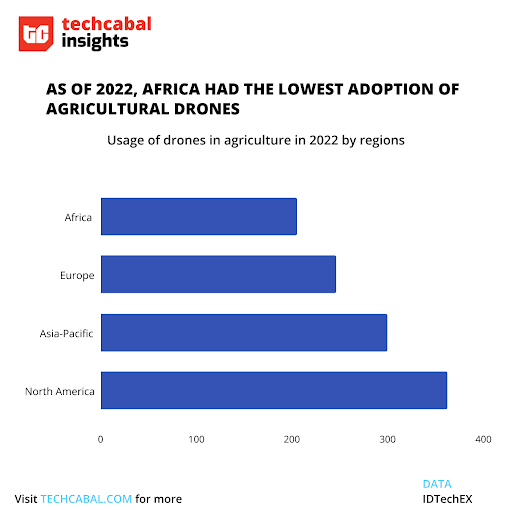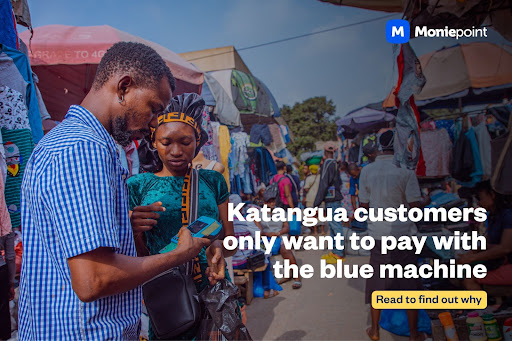Read this email in French.

IN PARTNERSHIP WITH

Good morning ☀️
It’s the final week of our 10th anniversary giveaway.
If you’re interested in winning some TechCabal merch, all you have to do is open TC Daily for 10 editions in a row.

We’ll send five readers in Nigeria a merch pack consisting of tote bags, t-shirts and mugs, while five readers outside Nigeria will get vouchers worth $20.
THE WORLD WIDE WEB3

|

|

|
|---|---|---|
|
Bitcoin 
|
$27,918 |
+ 1.31% |
|
Ether 
|
$1,766 |
+ 0.87% |
|
BNB 
|
$328 |
+ 1.44% |
|
Solana 
|
$20.73 |
+ 0.25% |
|
|
Source: CoinMarketCap
|
|
* Data as of 04:50 AM WAT, March 27, 2023.
A 24-year-old self-proclaimed crypto prodigy was kidnapped and tortured after scamming investors of $29 million. Daily Mail reports that Canada’s Auden Pleterski, who ran a crypto Ponzi scheme, was kidnapped in December and released a few days later after being beaten and tortured. Pleterski has filed for bankruptcy in Canada after blowing over $12 million on a private jet, luxury vacations, and super cars.
Venezuela’s energy supplier has shut down crypto mining facilities across the country. CoinTelegraph reports that the country is reorganising its national crypto department and investigating corruption involving its oil companies. Amidst the shutdowns, some crypto exchange platforms were also ordered to shut down.
Across the globe, digitisation is a finance buzzword, but in Nigerian markets, it becomes the difference between life and death.
Click here to read Moniepoint’s story on how digitisation is saving Nigeria’s markets.
This is partner content.
54GENE LAYS OFF STAFF AGAIN

Weeks after confirming its new CEO Ron Chiarello, Nigerian genomics startup 54gene has enforced another round of layoffs.
According to a source close to the 54gene, the company laid off 25%—about 10 employees—of its already lean workforce. This comes months after the startup laid off over 195 people between August and October 2022.
At the time, the company announced the layoffs as a move to restructure its struggling business as it had soared during COVID, then rapidly dwindled in resources as the pandemic died off.
This round of layoffs continues the business’ restructuring plan which is being led by its new leader Chiarello. In an email to TechCabal, the company said, “54gene’s new leadership is focused on prioritising the company’s core mission and positioning the company for future success, and that means certain roles were redefined or eliminated in recent months.”
The company—which started 2022 with 300 employees—now reportedly has just about 30 people across departments. Sources claim that its marketing, sales and compliance teams have been completely scrapped. Another claims that there are currently only six people manning its core genomic offerings: sequencing, biobank, and genotyping.
Zoom out: While 54gene declares that its obligations to its dismissed employees were fulfilled, its present workforce worries that the company will fall apart and burn out employees if it doesn’t get more hands.
NIGERIA WANTS TO IMPROVE BANKING

If there’s anything Nigeria’s cash crisis revealed, it’s that there’s no best or worst Nigerian online banking service: they’re all equally unreliable.
And the Nigerian parliament wants the country’s slew of failed online transactions and buggy bank apps fixed as soon as possible.
Last week, the Nigerian House of Representatives directed the Central Bank (CBN) to request that all banks overhaul their online banking systems.
According to the lawmakers, the directive is meant to increase the efficiency and ease of conducting electronic banking operations. The House further instructed its Committee on Banking and Currency to ensure adherence to the resolutions and submit a report within four weeks for additional legislative action.
Nigerians have had to rely on digital channels of transactions in recent months as the amount of currency in circulation has dropped from ₦3.2 trillion ($6.9 billion) in September 2022 to about ₦1 trillion ($2.1 billion) now. As cash became scarce, the use of electronic channels soared, with the Nigeria Inter-Bank Settlement System Plc (NIBSS) reporting that the volume of online transactions grew by 70%, while the value of transactions grew by 7.8% in February, compared to January. Use of Nigeria’s central bank digital currency (CBDC) also grew by 63%, according to CBN governor Godwin Emefiele.
The increase in use of online channels has also led to an increase in downtime which has affected the inflow and outflow of transfers. At this stage, it looks like every tech software the Nigerian government implements is never built to be used on a nationwide scale. 🤷🏾♂️
Zoom out: Experts that spoke to TechCabal explain that a change in core banking applications will take at least six months which could lead to even more devastating downtimes. Meanwhile, the CBN—in another move that questions its sanity—last week ordered banks to open during the weekend to alleviate the country’s cash scarcity, a scarcity the CBN created itself.
We help logistics companies get 6x more customers by adding insurance instantly to all their trips and making claims 10x faster.
To learn more about how this works, visit Curacel.co, or send an email to marketing@curacel.ai.
This is partner content.
AMAZON LAUNCHES NEW FINTECH ACCELERATOR IN AFRICA

Amazon’s African debut might be delayed, but the company is foraging into Africa in another way.
Via its cloud computing arm Amazon Web Service (AWS), Amazon has launched a business accelerator for African fintechs.
Hosted by AWS’ Startup Loft Accelerator, the AWS FinTech Africa Accelerator will focus on fintech and fintech-adjacent startups operating in Africa.
The programme will train chief executive and chief technology officers in strategy, tech team management, product development, and helping founders prepare for navigating the complexities of fundraising. Amazon will not be taking equity in the companies, nor will it offer venture debt.
Startups that are selected will join AWS’ Activate programme which will provide founders with up to $25,000 in Activate Credits, and other services. Founders will also participate in workshops and one-on-one sessions with industry experts to address specific challenges their company faces.
Applications are open until April 27, 2023. All pre-seed and seed-stage fintech startups operating in Africa can apply here.
TC INSIGHTS: ADOPTING DRONES FOR AFRICAN AGRICULTURE
Agriculture contributes 23% of the GDP and 49% of employment in Africa with farmers having a 60% share of the continent’s population. However, crop yields on the continent are low when compared to other regions, as only 23% of farmers use any form of agricultural technology over conventional methods, according to a survey by Heifer International.
Given Africa’s deepening food crisis, drone technology holds significant promise in revolutionising the continent’s agricultural sector. But financial, training, and regulatory barriers have made Africa’s commercial and smallholder farmers slow in adopting drone technology to improve crop yield optimization and agricultural productivity.

Drone tech adoption for sustainable agriculture in Africa is still in its infancy, as awareness of smart and digital agriculture is just growing on the continent. Across the world, drones have helped farmers increase crop yield and reduce waste by bringing data-driven precision and efficiency to farming by delivering aerial solutions for farm spraying, field mapping, and crop scouting. For example, in 2019, agriculture-focused drone services were deployed to protect crops and farm investments during the locust invasion on farms in Kenya.
However, with the operational and environmental benefits of using agricultural drones, African farmers face a challenge with high costs, a lack of technical know-how, and limited infrastructure needed for its rapid adoption.
Femi Adekoya, an agric drone specialist and founder of Integrated Ariel Precision (IAP), believes the hands-on training programs for farmers to share knowledge on drone best practices, ethics, safety, and efficiency will be a game-changer and offer proper pathways to licensing. “On the other hand, key players in the agricultural drones market also have to close the gap of affordability by achieving economies of scale and financial schemes needed to make drones cost-effective to acquire by African smallholder farmers, taking a leaf from India,” he said. While there are cost factors of training operators, purchasing additional equipment, and ongoing maintenance and repair, Femi however believes that the benefits of using drones justify the cost of investing in the technology.
Only about 26% of African countries have regulatory frameworks by the relevant authorities on drone usage for agricultural purposes regarding no-fly zones, altitude restrictions, and data privacy. Most have placed bans on drones in the past, while only a few have passed robust regulations guiding their use. Moreover, lack of legal clarity, harsh restrictions, and temporary bans will stifle the investment, testing, and research to develop market-driven agricultural drone technologies and innovations.
Ultimately, enabling open and inclusive regulations for the use of drone tech is integral to transforming Africa’s agricultural technology sector. Also, addressing the affordability and knowledge gap within farming communities would increase its adoption. Regulatory authorities should also augment the efforts of innovative startups providing agricultural intelligence as hyperlocal, actionable solutions to commercial and smallholder farmers.
Enjoy free transfers, innovative savings and seamless banking with OjirehPrime, available on Android and iOS.
This is partner content.
EVENTS: TECHCABAL AT 10

Here’s a list of all the Twitter Spaces we’ll be holding to celebrate our 10th-year anniversary.
- March 30—The role of the media in covering African tech. How can the media help Africa’s developing tech ecosystem? What responsibility does the media owe the ecosystem, and what can the media expect in return? Should the media only cover the good stories? Find out here.
IN OTHER NEWS FROM TECHCABAL
Ivorian Mstudio wants to build a strong francophone ecosystem, one venture at a time.
The 22-year-old UNILAG student setting the pace in the branding and packaging industry.
Why WhatsApp chatbots are rising in popularity in South Africa.
JOB OPENINGS
- Zikoko – Managing Editor – Lagos, Nigeria (Remote possible)
- Big Cabal Media – Commercial Director – Africa
- Big Cabal Media – Software Developer, Senior Product Manager, Sales Associate, Senior Sales Manager, Senior Editor (Citizen) – Lagos, Nigeria (Hybrid)
- Lemonade Finance – Social Media Associate, Senior Backend Engineer , Security Engineer – Africa (Remote)
- Assets MFB – Head of Brands and Marketing – Nigeria
- Kuda Bank – DevOps Engineer, Backend Engineer, Android Engineer, Lead Product Manager, Copywriter, UX Writer, – Nigeria
- Andela – Engineering Matching Specialist – Remote
There are more jobs on TechCabal’s job board. If you have job opportunities to share, please submit them at bit.ly/tcxjobs.



























